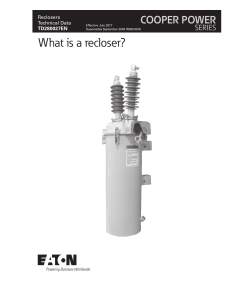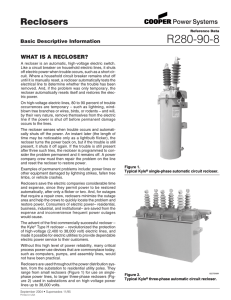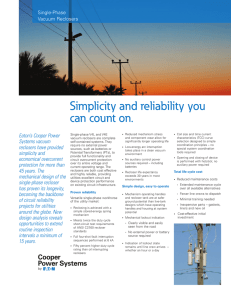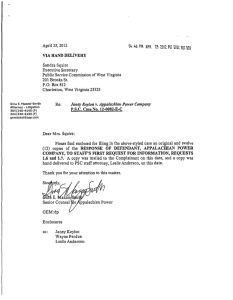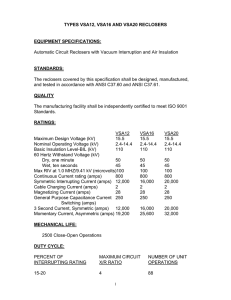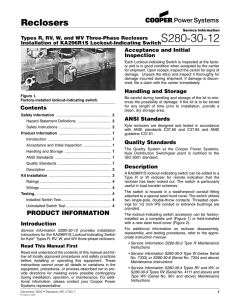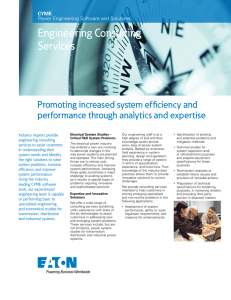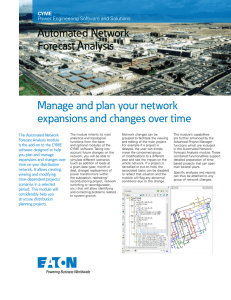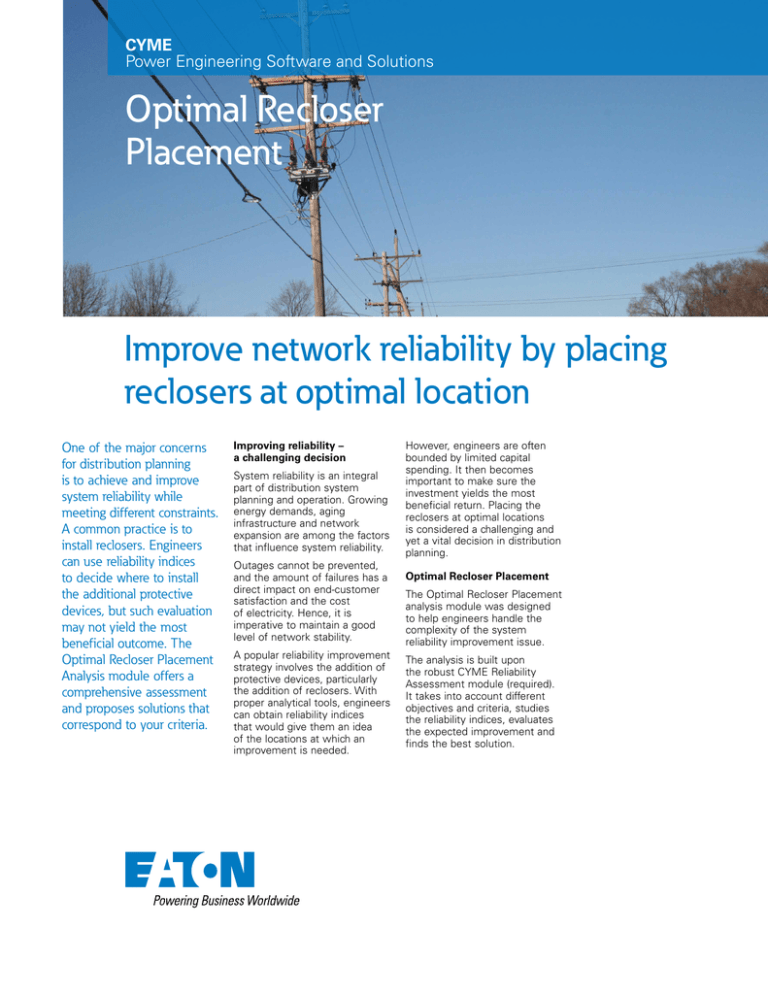
CYME
Power Engineering Software and Solutions
Optimal Recloser
Placement
Improve network reliability by placing
reclosers at optimal location
One of the major concerns
for distribution planning
is to achieve and improve
system reliability while
meeting different constraints.
A common practice is to
install reclosers. Engineers
can use reliability indices
to decide where to install
the additional protective
devices, but such evaluation
may not yield the most
beneficial outcome. The
Optimal Recloser Placement
Analysis module offers a
comprehensive assessment
and proposes solutions that
correspond to your criteria.
Improving reliability –
a challenging decision
System reliability is an integral
part of distribution system
planning and operation. Growing
energy demands, aging
infrastructure and network
expansion are among the factors
that influence system reliability.
Outages cannot be prevented,
and the amount of failures has a
direct impact on end-customer
satisfaction and the cost
of electricity. Hence, it is
imperative to maintain a good
level of network stability.
A popular reliability improvement
strategy involves the addition of
protective devices, particularly
the addition of reclosers. With
proper analytical tools, engineers
can obtain reliability indices
that would give them an idea
of the locations at which an
improvement is needed.
However, engineers are often
bounded by limited capital
spending. It then becomes
important to make sure the
investment yields the most
beneficial return. Placing the
reclosers at optimal locations
is considered a challenging and
yet a vital decision in distribution
planning.
Optimal Recloser Placement
The Optimal Recloser Placement
analysis module was designed
to help engineers handle the
complexity of the system
reliability improvement issue.
The analysis is built upon
the robust CYME Reliability
Assessment module (required).
It takes into account different
objectives and criteria, studies
the reliability indices, evaluates
the expected improvement and
finds the best solution.
Optimal
Recloser
Placement
Improve network reliability
by placing reclosers at
optimal locations.
Comprehensive Analysis
Meaningful Results
The Optimal Recloser Placement
analysis offers a weightedobjective optimization technique
which improves:
As all other CYME analyses, the
Optimal Recloser Placement
analysis generates results in
report formats.
•
SAIDI (System Average
Interruption Duration Index)
•
SAIFI (System Average
Interruption Frequency Index)
•
User-defined criteria based on
CYME keyword expressions
The analysis also provides two
optimization methods:
•
Sequential Search
•
Iterative Search
Reports include:
•
Summary report which
summarizes the reliability
indices of the initial network
compared to the optimal
solution network
•
Detailed report which gives
details on each recloser to be
added
•
Reliability assessment reports
Options are also available to
customize these reports.
Another mean to help users
visualize the results is their
display on the one-line diagram.
Users can choose to highlight
the evaluated sections via colorcoding. Suggested reclosers can
be applied to the network via
buttons in the report.
Features
The analysis is designed to take
into consideration a wide-range
of user-defined criteria:
•
Define the number of
reclosers
•
Specify a searching distance
for the possibility of adding a
recloser
•
Evaluate locations
downstream to feeders,
specific sections or specific
nodes
•
Choose the recloser to be
used from the equipment
library
•
Choose operation mode and
define reclose settings
•
Include user-defined
constraints (ex: loading limits,
distance between reclosers,
etc.)
•
Ignore specific locations
Eaton
1000 Eaton Boulevard
Cleveland, OH 44122
United States
Eaton.com
CYME International T&D
1485 Roberval, Suite 104
St.Bruno, QC, Canada J3V 3P8
P: 450.461.3655 F: 450.461.0966
P: 800.361.3627 (Canada/USA)
CymeInfo@eaton.com
www.eaton.com/cyme
© 2015 Eaton All Rights Reserved
Printed in Canada
Publication No. BR 917 026 EN
November 2014
Eaton is a registered trademark.
All other trademarks are property
of their respective owners.
Follow us on social media to get the
latest product and support information.


